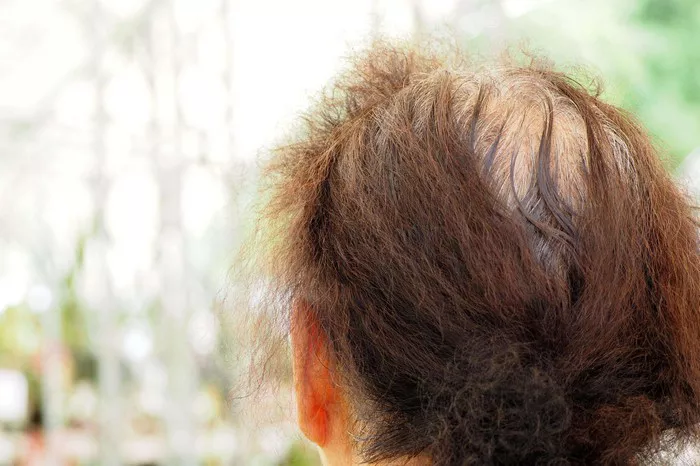Hair loss is a common concern for many individuals, and the experience of finding strands of hair on your pillow or in the shower drain can be disconcerting. While it is normal to lose some hair every day, excessive hair shedding may raise questions about underlying causes. In this article, we will delve into the reasons behind everyday hair loss and dispel common myths surrounding this natural occurrence.
The Hair Growth Cycle: A Dynamic Process
To comprehend why we lose hair daily, it’s crucial to understand the hair growth cycle. Hair goes through a continuous cycle that consists of three phases: anagen (growth phase), catagen (transitional phase), and telogen (resting phase). Approximately 90% of our hair is in the anagen phase at any given time, which lasts for several years. Following this, hair enters the catagen phase for a brief period before transitioning to the telogen phase, where it eventually sheds to make way for new hair growth.
Normal Hair Shedding: Setting the Baseline
On average, it is entirely normal to lose about 50 to 100 hairs per day. This shedding is part of the natural turnover of hair and is generally not a cause for concern. The hairs that fall out are often in the telogen phase, and this shedding is replaced by new hair growth in the anagen phase. However, when the balance between hair shedding and new growth is disrupted, it can lead to noticeable thinning or hair loss.
Factors Influencing Everyday Hair Loss
Several factors contribute to everyday hair loss, and understanding them is essential for distinguishing normal shedding from abnormal patterns.
1. Heredity and Genetics: Family history plays a significant role in hair loss. If your parents or grandparents experienced hair thinning or baldness, there is a higher likelihood that you may also be predisposed to it.
2. Hormonal Changes: Hormonal fluctuations, such as those that occur during pregnancy, childbirth, menopause, and conditions like polycystic ovary syndrome (PCOS), can impact hair growth. Additionally, hormonal shifts in both men and women as they age can contribute to hair loss.
3. Medical Conditions: Certain medical conditions, such as thyroid disorders, autoimmune diseases, and alopecia areata, can lead to hair loss. Addressing the underlying health issue is crucial in managing hair loss in such cases.
4. Nutritional Deficiencies: A lack of essential nutrients, such as iron, zinc, and vitamins, can contribute to hair loss. Maintaining a balanced diet with the necessary nutrients is crucial for healthy hair.
5. Stress and Lifestyle Factors: Chronic stress can contribute to hair loss by disrupting the normal hair growth cycle. Additionally, poor lifestyle choices, such as smoking, excessive alcohol consumption, and inadequate sleep, can negatively impact hair health.
6. Hairstyling Practices: Excessive heat styling, tight hairstyles (like braids or ponytails), and the use of harsh chemicals can damage the hair shaft and contribute to breakage and hair loss.
Dispelling Common Myths about Hair Loss
There are several myths surrounding hair loss that can lead to unnecessary worry. Dispelling these misconceptions is vital for fostering a better understanding of everyday hair shedding.
1. Shampooing Causes Hair Loss: Contrary to popular belief, washing your hair regularly does not cause hair loss. In fact, keeping the scalp clean and healthy is essential for promoting optimal hair growth.
2. Hats and Helmets Cause Baldness: Wearing hats or helmets does not lead to permanent hair loss. However, it’s crucial to maintain good hygiene to prevent conditions like dandruff or folliculitis.
3. Hair Loss is Irreversible: While some forms of hair loss may be permanent, many are reversible or can be managed with appropriate treatment. Seeking professional advice early can make a significant difference.
See Also: 7 Best Variant for Hair Loss: Head & Shoulders Shampoo
Conclusion: Navigating Everyday Hair Loss with Knowledge
In conclusion, losing hair every day is a normal and natural part of the hair growth cycle. Understanding the factors that contribute to everyday hair loss and dispelling common myths can alleviate unnecessary concerns. If you notice a significant increase in hair shedding, consulting with a healthcare professional or a dermatologist can help identify underlying causes and determine appropriate interventions. Remember, maintaining a healthy lifestyle, addressing underlying health issues, and adopting proper hair care practices are essential steps in promoting overall hair health.


